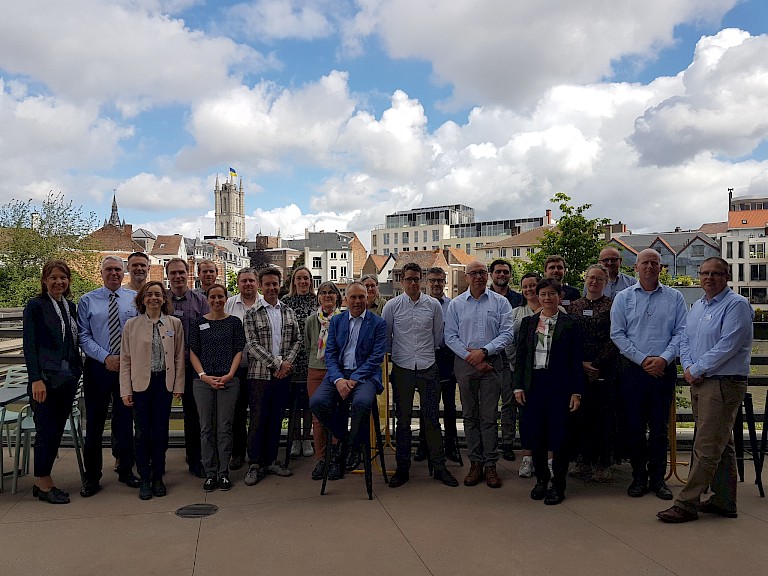Working Group on Operational, Technical and Scientific Questions Concerning Counter-Pollution Activities 2022
The 2022 meeting of the Working Group on Operational, Technical and Scientific Questions Concerning Counter Pollution Activities (OTSOPA) was kindly hosted by Belgium in Ghent on 22-25 May 2022. The meeting was chaired by Mr Ole Kristian Bjerkemo from Norway, standing in for Torben Iversen (Denmark), and attended by participants from Belgium, Denmark, the European Union (European Commission and European Maritime Safety Agency), France, Germany, Ireland, the Netherlands, Norway, Spain, Sweden and the United Kingdom. EUROWA attended for the first time as Observers to OTSOPA.
OTSOPA welcomed Spain’s official membership to the Bonn Agreement and the opportunity to meet in person after a long absence.
Although the ratification process to extend the scope of application of the Bonn Agreement to include the requirements of Annex VI to the MARPOL Convention was still ongoing, OTSOPA continued making progress on this issue and agreed on a tiered approach. As a first step, the MARPOL Annex VI Working Groups on Strategic and Operational aspects (MAVI-SOWG) and Technical matters (MAVI-TWG) would be activated and, in a 2nd phase, a project proposal could be submitted. This option was feasible as co-convenors were proposed for MAVI-SOWG. Only MAVI-TWG had been active during the 2021-2022 working cycle, organising a meeting where developers and researchers were invited.
No changes were made to the list of research priorities and Contracting Parties noted that they still had no resources in place to address those priorities identified for the short-term. The list was shared annually with other Regional Agreements to search for synergies and OTSOPA agreed to publicise them on the website to create awareness following a proposal from the Intersessional Correspondence Group on the identification of funding priorities (ICG-IFP).
OTSOPA supported the work of the Oil Spill Identification Network (OSINet) and agreed on new Terms of Reference that would ensure its continuity.
Discussions were held on emerging issues such as plastic pellets spills, increasing trends in MARPOL Annex II discharges, near misses with vessels drifting to windfarms during winter storms, and environmental impacts of new fuels covered in the IMAROS project. An update on research projects involving Hazardous and Noxious Substances were presented: MANaging risks and Impacts From Evaporating and gaseous Substances To population Safety (MANIFESTS) and IRA-Mar project on "improving the integrated response to pollution accident at sea and chemical risk in port".
The Aerial Surveillance Expert Assessment Panel (EAP) referred to the aerial surveillance, Tour d’Horizon and CleanSeaNet satellite reports considered at their annual meeting.
Lessons learnt from the following incidents were shared: placement of vessel Almirante Storni with a fire on board in a Port of Refuge presented by Sweden; loss of empty containers from the MV Marcos presented by the Netherlands; grounding and subsequent re-floating of the Ultra Large Container Vessel Maersk Mumbai presented by Germany and the oil spill from loading buoy in Peru presented by France.
